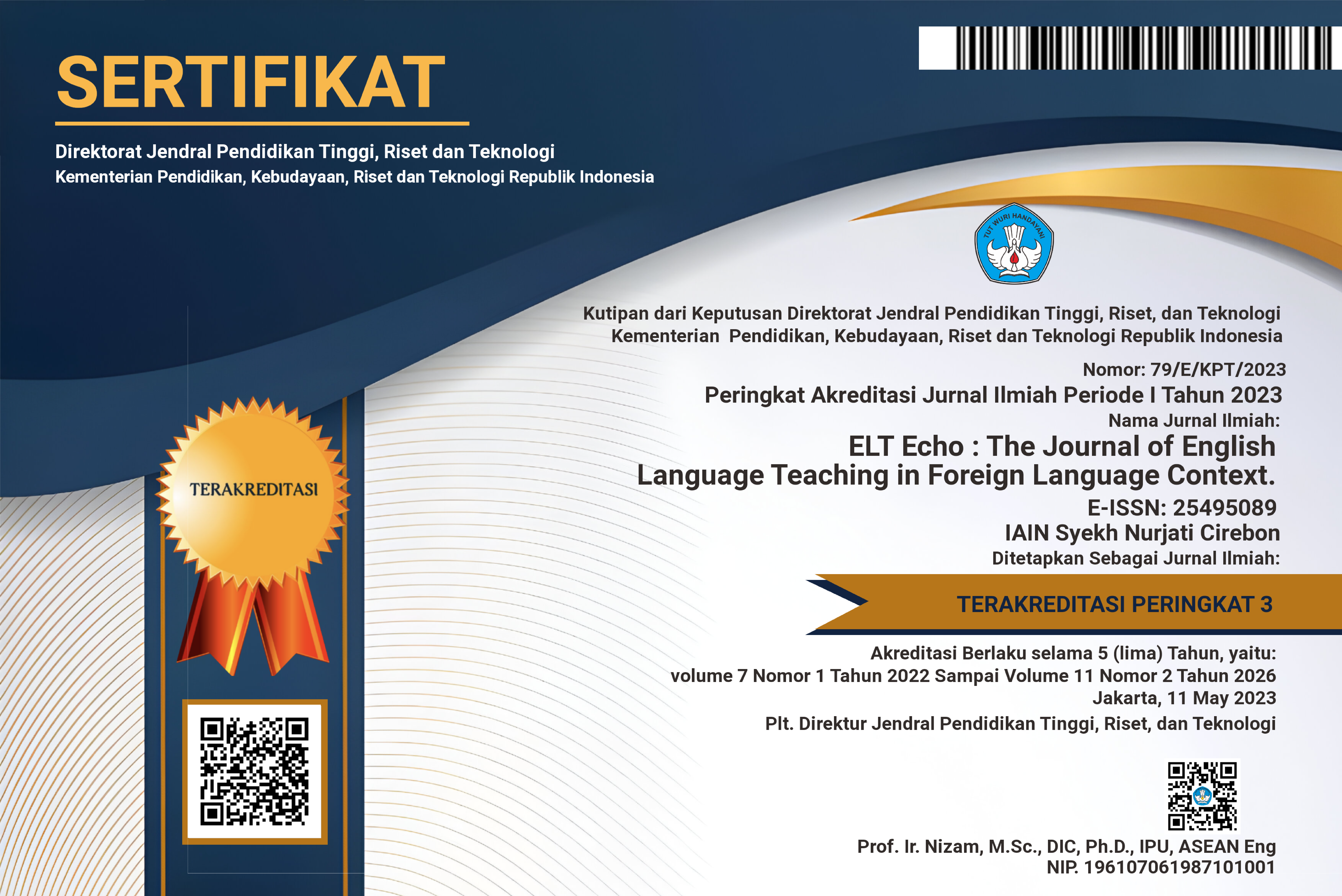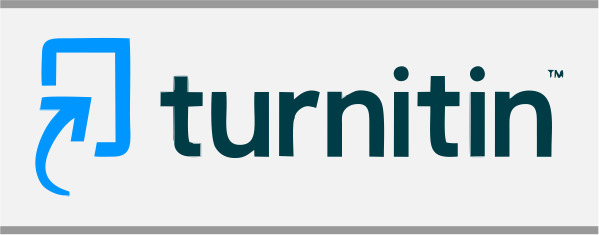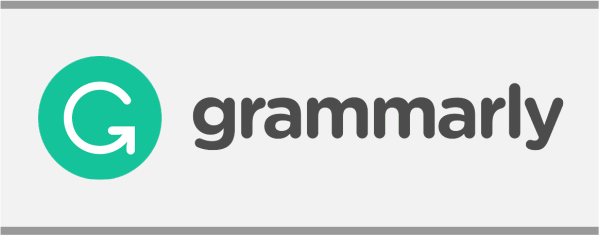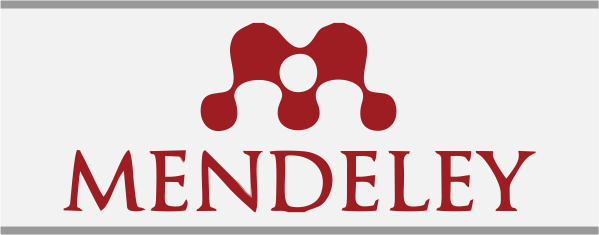PEDAGOGICAL ACTION AND TECHNOLOGIES DURING ONLINE LEARNING: A CASE STUDY
(1) IAIN Syekh Nurjati
(*) Corresponding Author
Abstract
Keywords
Full Text:
PDFReferences
Ahmadi, D., & Reza, M. (2018). The use of technology in English language learning: A literature review. International Journal of Research in English Education, 3(2), 115-125.
Ahmad, S. (2012). Pedagogical action research projects to improve the teaching skills of Egyptian EFL student teachers. Proceedings of the ICERI2012, Spain.
Azhar, K. A., & Iqbal, N. (2018). Effectiveness of Google classroom: Teachers’ perceptions. Prizren Social Science Journal, 2(2), 52.
Barry. (1998). A Study of Students Perception in English Classes.Vol.33 No.2.
Choy, S. C., & Cheah, P. K. (2009). Teacher perceptions of critical thinking among students and its influence on higher education. International Journal of teaching and learning in Higher Education, 20(2), 198-206.
Clements, D. H., & Sarama, J. (2003). Strip mining for gold; research and policy in educational technology-a response to fool’s gold. Educational Technology Review, 11(1), 7-69.
Creswell, J.W. (2008). Educational research: Planning, conducting, and evaluating quantitative and qualitative research. Pearson Merrill
Creswell, J.W. (2009). Research Design: Qualitative, Quantitative, Mixed Methods Approches (3rd). SAGE Publications Ltd.
Dabbagh, N. & Bannan-Ritland, B. (2005). Online learning: Concept, strategies, and application. Pearson education, Inc.
European Commission (2001).The e-Learning Action Plan: Designing tomorrow’s education.http://www.elearningeuropa.info.
Gençlter, B. (2015). How does technology affect language learning process at an early age? Procedia - Social and Behavioral Sciences, 199(2015), 311 – 316. doi: 10.1016/j.sbspro.2015.07.552. https://www.researchgate.net/publication/283165281_How_does_Technology_Affect_Language_Learning_Process_at_an_Early_Age
Harmer, J. (2007). The practice of English language teaching. Pearson.
Hinkelman, D. (2018). Blending technologies in second language classrooms. Springer.
Iftakhar. I. (2016). Google classroom: What works and how? Journal of Education and Social Sciences, Vol. 3, (2).
Leaver, B. L., & Willis, J. R. (Eds.). (2004). Task-based instruction in foreign language education: Practices and programs. Georgetown University Press.
Leh, A. S. (2005). Learned from service learning and reverse mentoring in faculty development: A case study in technology training. Journal of Technology and Teacher Education, 13(1),25-41.
Norton, L. (2014). The case for pedagogical action research in psychology learning and teaching. Psychology Teaching Review, 20 (2).
Okojie, M. C., Olinzock, A. A., & Okojie-Boulder, T. C. (2006). The pedagogy of technology integration. Journal of technology studies, 32(2), 66-71.
Oliver, M., & Trigwell, K. (2005). Can ‘blended learning’be redeemed?. E-learning and Digital Media, 2(1), 17-26.
Robbins, S. P. (2003). Organizational Behaviour (10th ed.). Prentice Hall
.
DOI: 10.24235/eltecho.v4i1.11318
Article Metrics
Abstract view : 14 timesPDF - 5 times
Refbacks
- There are currently no refbacks.
Â
This Journal is indexed by:
Â

This work is licensed under a Creative Commons Attribution 4.0 International License.










